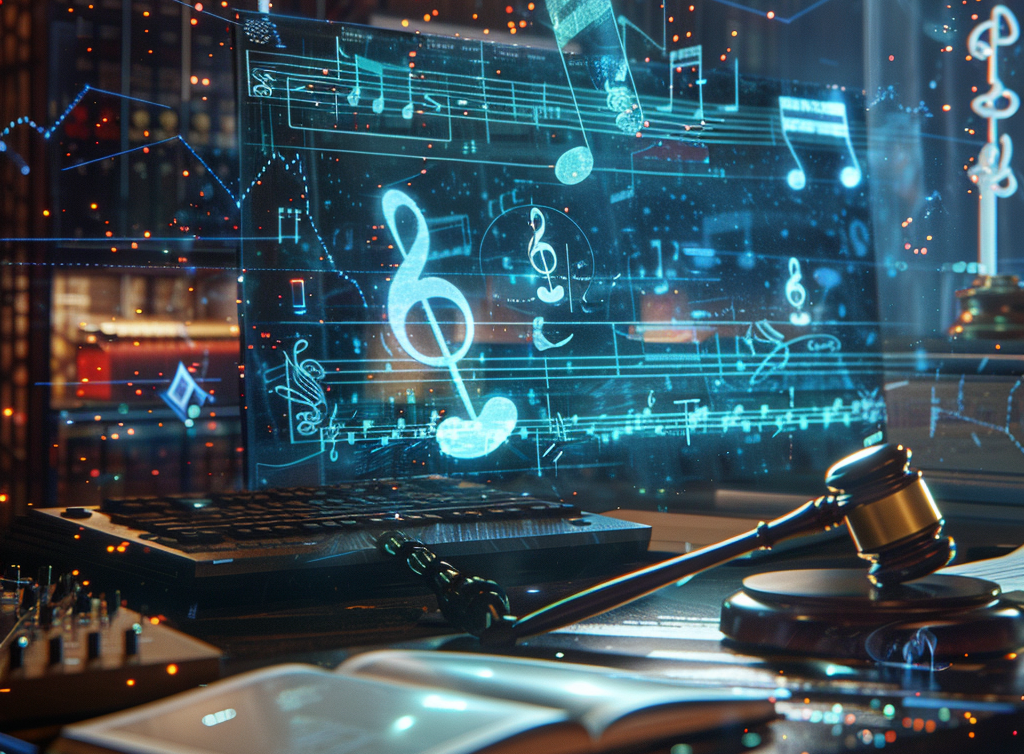Udio has launched Version 1.5, introducing new AI-powered song creation features, even as it faces a significant lawsuit from the RIAA and major record labels.
Udio Unveils Major Update Amidst Legal Battle with RIAA and Major Labels
Udio has launched Version 1.5, introducing new AI-powered song creation features, even as it faces a significant lawsuit from the RIAA and major record labels.
Overview
Udio, an AI-driven music creation platform, has released Version 1.5, promising enhanced audio quality and new user-friendly features. This update arrives at a critical juncture as Udio contends with a lawsuit from the RIAA and major labels, including Sony, Universal, and Warner, over alleged copyright infringement.
Key Features of Version 1.5
Enhanced Audio Quality
Udio’s latest update boasts substantial improvements in audio quality. Users can now create 48kHz stereo tracks with better clarity, instrument separation, and overall musicality. According to Udio, the update ensures that generated songs sound warmer and more authentic, addressing previous criticisms of a “tin-can” quality in vocals.
New Creation Tools
The update introduces a dedicated creation page, consolidating all tools and libraries for easier access. This page aims to streamline the song creation process, making it more intuitive for users to generate and manage their music projects.
Stems and Remixing
One of the standout features is the ability to download stems, allowing users to separate tracks into vocals, bass, drums, and other elements. This functionality facilitates remixing and further customization using external tools.
Global Language Support
Udio has expanded its language support, adding new languages such as Mandarin and Korean. This enhancement aims to make the platform more accessible to a global audience.
Shareable Lyric Videos
The update also includes the ability to create shareable lyric videos, enhancing the platform’s social media integration and user engagement.
Legal Challenges

Allegations of Copyright Infringement
The RIAA, representing major labels, has filed a lawsuit against Udio and another AI music platform, Suno, accusing them of copyright infringement on an “unimaginable scale”. The lawsuit alleges that these platforms have unlawfully used copyrighted music to train their AI models without obtaining necessary permissions, resulting in the creation of derivative works that compete with original recordings.
Industry Reactions
The 34-page lawsuit has garnered support from various industry stakeholders, including artists and executives, who argue that the unlicensed use of copyrighted material undermines the value of genuine artistic creations. RIAA Chairman Mitch Glazier emphasized the need for responsible AI development that respects artists’ rights, highlighting the potential harm of unauthorized AI-generated music on the industry.
Why This Matters
For music producers, the developments surrounding Udio’s update and the ongoing lawsuit are significant.
The enhanced features in Version 1.5 offer new tools and capabilities that can aid in music production, making it easier to create high-quality tracks.
However, the legal challenges underscore the importance of navigating copyright laws when using AI in music creation. The outcome of this lawsuit could set a precedent for how AI-generated music is regulated and could impact the availability and use of such tools in the future.
For more information on the latest updates and legal developments, visit Tom’s Guide and Variety.



